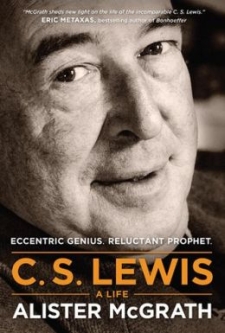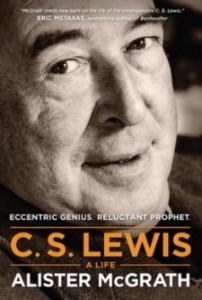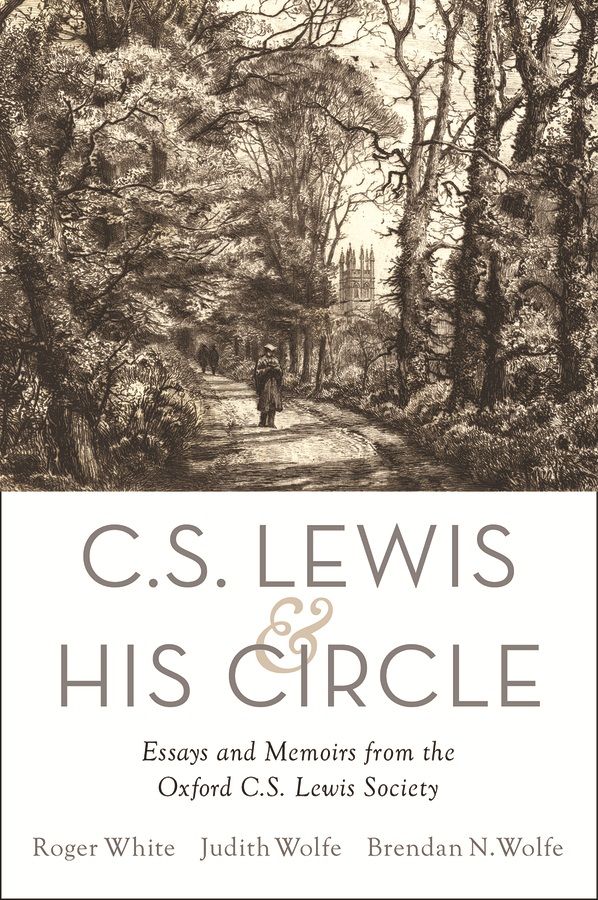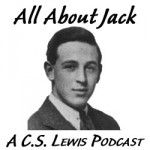
 If you keep up with news about C.S. Lewis in general you are well aware that a new biography about him, C.S. Lewis – A Life, was recently released. The author is Dr. Alister McGrath, Professor of Theology, Ministry and Education at King’s College London. If you would like a win a copy of C.S. Lewis – A Life visit my contest page over at my blog, C.S. Lewis Minute.
If you keep up with news about C.S. Lewis in general you are well aware that a new biography about him, C.S. Lewis – A Life, was recently released. The author is Dr. Alister McGrath, Professor of Theology, Ministry and Education at King’s College London. If you would like a win a copy of C.S. Lewis – A Life visit my contest page over at my blog, C.S. Lewis Minute.
Recently I had a chance to interview Dr. McGrath by phone and highlights from that conversation is below. There is information below about where to go online to listen to the entire interview.
O’Flaherty: Why read any biography on person like Lewis when you can read him directly?
Dr. McGrath: I think it does help to read about an author’s life I think it means that when you read their writings you get on fair more out of it. So I think your reading of Lewis’s writings is enriched by know more about his life, more about the people who influenced him, more about the intellectual culture of his day and age.
O’Flaherty: Who was your target audience for your biography?
Dr. McGrath: There is a rising generation of people who know Lewis primarily through Narnia; whether it is the books or movies. I thought wouldn’t it be good to write a biography that a.) is very up-to-date, but b.) engages a readership who know Lewis in a very specific way.
O’Flaherty: What impact did Lewis’s friendships in general and especially with J.R.R. Tolkien have on him?
Dr. McGrath: I have no doubt that Lewis and Tolkien and others wrote better books than they would have otherwise might have do because of the encouragement and influence of each other. Of course Tolkien does stand out…sadly, as you know it went wrong and I think that is something that I found very, very sad as I researched it. One of the few things I could contribute to this discussion is discovering a letter in which Lewis recommends Tolkien for the 1961 Nobel Prize in Literature.
O’Flaherty: What about uncovering a possible need to change the date of Lewis’s conversion to Theism; is it really all that important?
Dr. McGrath: I think that many readers will say that the important thing is Lewis got converted. When he got converted is just fine detail, the important thing is when he wrote Narnia and Mere Christianity he was a Christian…I agree with that point…I think that there is a very big question here, how significant is a re-dating when it’s only a matter of a year or so. There will be many who say that it is not all that big of an issue.
O’Flaherty: How did the Bible shape Lewis?
Dr. McGrath: Lewis is a very orthodox Theologian, he inhabits a world that is deeply shaped by Scripture, but I think it is shaped indirectly. Another words, Lewis is in effect taking his cues from others who have read the Bible and is very happy to have his world shaped by them.
O’Flaherty: Lewis failed as a poet, but did it have a positive result?
Dr. McGrath: I can understand those who say “Lewis is a failed poet,” but I want to make a very important observation: Lewis’s prose is saturated with poetic rhythms. Another words, he may have failed a poet, but he is a poet as he expresses things in prose.
O’Flaherty: Lewis wrote many essays; do you have any favorites?
Dr. McGrath: My favorite is the 1941 work, which really took the form of the University sermon, “The Weight of Glory.” I think that is a masterpiece. It states in a very compact form some remarkably significant theological truths. He wrote so many amazing essays.
– – – – – – – – – –
If you want to go beyond the highlights (and learn what Dr. McGrath has to say about Narnia), then you can hear the entire interview over at my All About Jack: A C.S. Lewis Podcast page. Every week something different is posted or showcased there (an interview with an author, a C.S. Lewis related talk, or news about an upcoming Lewis-related event. Also, don’t forget to visit my “all-in-one” site EssentialCSLewis.com for fresh material each day that includes a quiz question, Lewis fact and quote of the day.



